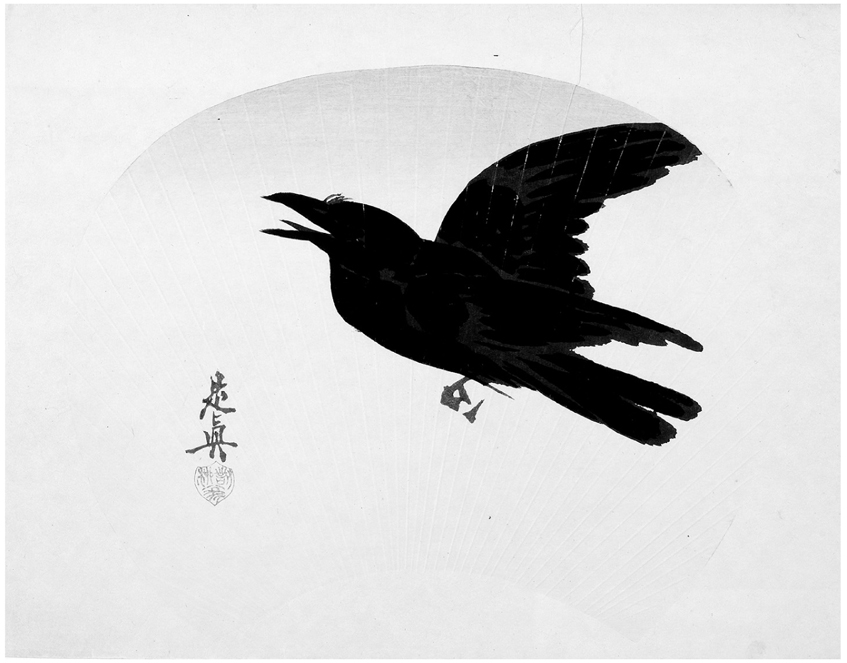
‘So what will you do?’ he asked, once the frenzy of events had abated and the roar of excitement dulled to a buzz.
‘I think that’s a question I should be asking you,’ she replied. ‘The actions of a regent of the council are of far greater interest than someone as inconsequential as me.’
He stretched with languid indulgence, as if doing so would clear the months of strain.
‘I don’t think the bakufu would have had your debts annulled if you were as insignificant as you claim. If they hadn’t, the first thing I would have done would be to buy out your contract.’
‘But they did and so you can’t. Which still leaves me wondering what you will do instead.’
‘I will do as the duty of a regent demands. I shall endeavour as best I can to ensure our great land is run for the betterment of the shōgun and his people.’
It was said with a straight face that didn’t hide the smile that lay beneath. She returned it with an equally impassive look that revealed just as much. But she still didn’t tell him her plans and he knew she wouldn’t. He doubted he would see her again.
Outside the sun blazed an early-winter glory. A gust of wind tore at the few leaves still held by jealous owners, sending them pirouetting through the air and down the parade. To the unknowing eye all appeared normal, but those who knew the area knew it was not.
Yoshiwara thrived, it survived, on drama. This usually centred on true love breaking through the quarter’s superficial romance: courtesans eschewing the rich and powerful for the powerless and poor; love pacts that led to unlikely escapes; and quashed romances and double suicides that left a bittersweet aching in even the hardest Yoshiwaran heart.
The heroines were the courtesans, the greatest revered for their indomitable spirit, their rebellious verve and elan. The heroes were their lovers and clients, but only those who revealed themselves exceptional in gallantry and charm. Through their dramas, collective misery was made bearable by the adventures of a few.
But the greatest of Yoshiwara’s stories were usually myths, a fact that was acknowledged by being ignored. Until now, when a story greater than all others had played out before their very eyes, its significance felt not only in Yoshiwara and Edo, but in Osaka, Kyoto and the rest of Japan.
Crowds had lined the streets and clients and courtesans jostled on balconies to witness a squad of bakufu troops surge down the parade. They had advanced to Izumiya without resistance for the plotters had relied on stealth instead of strength for their defence and had left their militias behind.
As custom demanded, they had even handed their swords in at Izumiya’s door. One assistant made an attempt to retrieve his when the bakufu samurai burst in. His neck was severed three-quarters of the way through as reward.
They had been led out with hands bound and some heads bowed. But not Lord Genpachi’s. He had maintained his regal bearing, walking proud as the line of lords made prisoners were marched to Edo between a samurai guard.
Within ten days they were dead. But their crimes were too abhorrent for the honour of seppuku. Their interrogations were thorough and abundant in pain. The deaths that followed lingered almost as long, the slow demise of crucifixion ended by thrusts of long lances just before exposure extracted its final toll.
Their bodies were displayed a week more, serving warning to would-be plotters and providing carrion for scavengers and birds. Their families were treated more leniently. They too were tortured, man, woman and child, but in their beheading their deaths were at least swift.
At the end of the controlled carnage none of the plotters’ bloodlines remained, their long dynasties at an end. But plenty were willing to take their place, to assume their land and their stipends, their power and wealth.
Men like Lord Ezoe.
But of Katsuyama? Three days after the affair she disappeared from Yoshiwara like a will-o’-the-wisp. And despite its disappointment, Yoshiwara was happy. Truth was now free to be moulded into myth; the constraints of fact removed and the possibilities endless for playwrights and artists to craft.
So it was that in the eleventh month Katsuyama lived and breathed the Yoshiwaran air, and in the twelfth she did not. And while there must have been those who knew where she went, none ever said.
